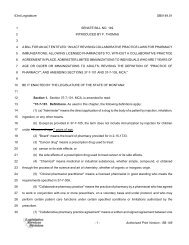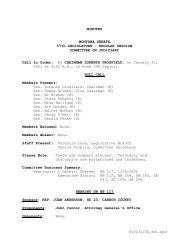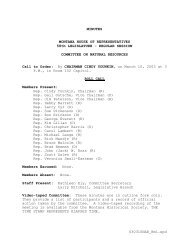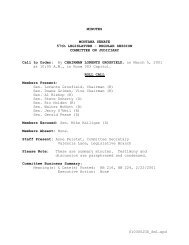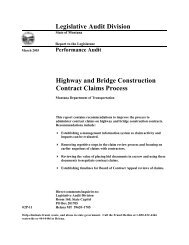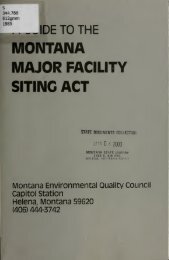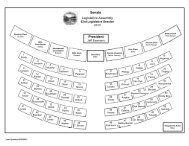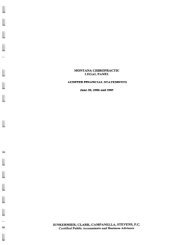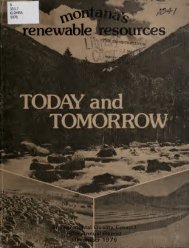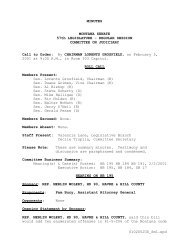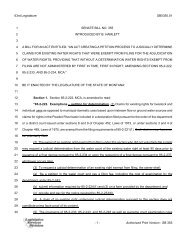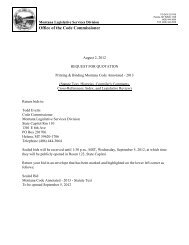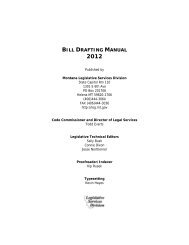Public Comment. Volume III - Montana Legislature
Public Comment. Volume III - Montana Legislature
Public Comment. Volume III - Montana Legislature
You also want an ePaper? Increase the reach of your titles
YUMPU automatically turns print PDFs into web optimized ePapers that Google loves.
H AND B 11P<br />
HOLLAND & HART^^^<br />
AlTORNEYS AT LAW<br />
Environmental Quality Council<br />
April 1 1, 2000<br />
Page 4<br />
Another proposal before the subcommittee deals with the interests which<br />
can be acquired by the condemnor. Frankly, .I am not sure whether the propmal<br />
seeks to Limit that interest to an easement, or merely instead suggests that the<br />
interest which the condemnor can acquire be limited to something less than fee<br />
simple title if fee simple title is not necessary for the intended use. Under<br />
existing law, the court bas the power to limit the interest sought if in the court's<br />
opinion the interest sought, such as fee simple title, is not necessary. Mont.<br />
Code Ann. 70-30-206(1)(b). It seems to me this is the appropriate approach<br />
because it allows the judge to tailor the interest to fit the circumstances of each<br />
case. In addition, it does not restrict the judge to one or two alternatives such<br />
as fee simple title or an casement, but rather broadens the possibilities to other<br />
interests, such as a fee simple with an automatic reverter to the condernnee or<br />
the condemnee's successor, when the property is no longer being used for the<br />
purpose for which it was taken. As noted, the decision of what type of interest<br />
the condemnor may obtain is presently determined by the judge, which is<br />
appropriate because of the judge's background and legal training. That decision<br />
would be made by a jury if the law is amended to permit the jury to determine<br />
the issue of necessity.<br />
Finally, I would like to comment on the draft copy of a proposed bill<br />
deahg with the liability of a property owner whose property is taken by eminent<br />
domain. The intent of the bill seems to be to apportion liability between the<br />
condemnor and the condemnee for damages resulting from the coustructioq use<br />
or maintenance of a project.<br />
The bill provides in subsection (2) that a condemnee may be held liable<br />
only for damages caused by his or her gross negligence or intentional conduct. 1<br />
do not understand the justification for relieving anyone, including condemnees,<br />
from the consequences of his or her negligence. Under <strong>Montana</strong> law, a person is<br />
responsible for damages caused by his or her negligence, and I see no<br />
justification for enacting legislation which relieves a person of that duty.<br />
Subsection (3) of the draft bill which attempts to place the burden of defense on<br />
the condemnor, unless the damages claim results from the condemnee's gross<br />
negligence or intentional conduct, is objectionable for the same reasons. A<br />
person should be responsible for his or her negligence, and that responsibility<br />
ought to include defense of an action for damages.<br />
EQC Eminent Domain Study -1 21 -



